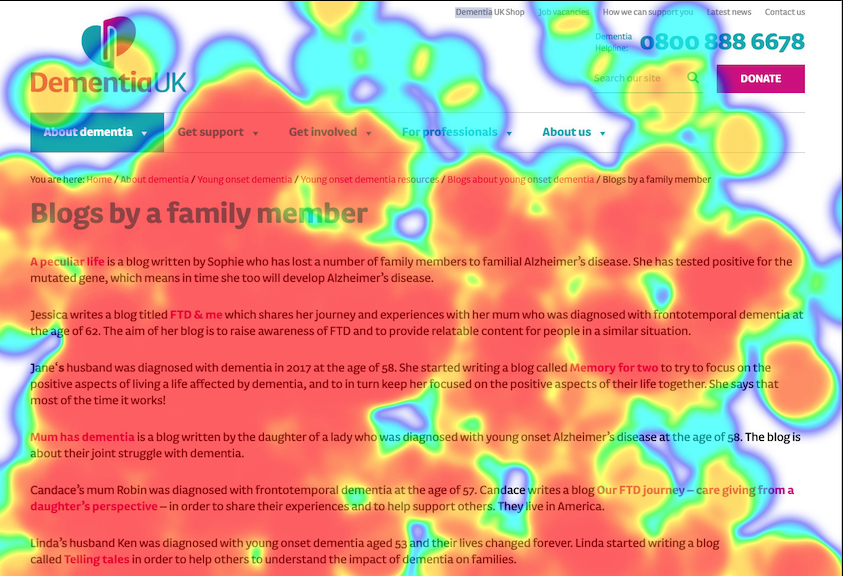
EQUI-Tech Lab: Recent Projects
GenAI Chatbots Co-Customized by People having Dementia for Dementia Information
Conducting a study to customize GenAI chatbots with people living with MCI and mild to moderate dementia (n =14), comparing their text outputs against mainstream chatbots on accuracy, reliability, trustworthiness, readability, tone, hallucinations, and stigma, to assess whether co-trained models improve information quality and accessibility.Investigating Digital Dementia Information via Webcam Eye Tracking and Facial coding
We examine how individuals with mild dementia engage with digital health information, focusing on cognitive load, emotional and behavioral responses. Using eye-tracking and facial expression analysis, we assess their interaction with different online dementia information sources, investigating how they process challenging content and their level of trust in these sources.Analyzing Smartphone Usage with People with Dementia
Mobile phone usage has become ubiquitous in recent decades, including among older adults and those with age-related cognitive changes. The research reveal common interaction patterns, app preferences, and privacy/security measures among these groups, offering insights for developing apps tailored to their needs and suggesting future research directions.Other GenAI Projects
Analyzing Digital Dementia Information in English: Readability and Emotional Characteristics
Our study aimed to comprehensively analyze digital dementia information by exploring its read- ability, linguistic, psychological, and emotional aspects, as well as identifying its intended target audiences. To achieve this, we performed an in-depth textual analysis encompassing three distinct categories of text-based digital dementia information available in English: a dataset consisting of 300 medical articles, 35 websites, and 50 blogs.Previous Lab and Research Works
Hardware and Security Lab
Security attacks on GPU
As GPUs continue to evolve and gain prominence in various domains, research efforts are increas- ingly dedicated to understanding and countering the development of novel attack techniques, with a particular emphasis on thwarting the exploitation of GPU vulnerabilities by malicious actors.Developing and Evaluating GenAI RAG based LLM Chatbot for Accurate Trustworthy and StigmaFree Dementia Information
The goal is to build a dementia-focused biomedical QA assistant that retrieves evidence from PubMed and PMC, generates answers with inline PMID citations, and ensures reliability by minimizing hallucinations through claim-level verification and selective abstention. The system emphasizes accessibility by relying on open and consumer-friendly tools, while its evaluation framework focuses on trustworthiness using metrics such as Attribution@k, Refusal Accuracy, and Claim-level Hallucination. In addition, a continued pretraining (CPT) component on biomedical and dementia literature is included to improve domain alignment, meet research requirements, and enhance publishability. PERSIST Lab
Evaluating Performance of Lightweight Cryptographic Algorithms in Battery-less Platform
NIST undertook an evaluation of lightweight cryptographic algorithms using custom-made battery less hardware, aiming to assess their performance against traditional counterparts. This com- prehensive analysis sought to determine the feasibility of replacing traditional security algorithms with lightweight alternatives in batteryless environments, with the ultimate goal of enhancing the user experience within IoT technologies and applications.HATLab
Privacy Issues in Screen Saver Widget-Application
We were developing an Android app and widget to detect data leaks of private information from other apps, such as location, email, name, and phone number. Our goal was to provide users with privacy settings and diverse designs.

